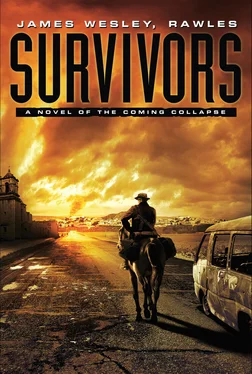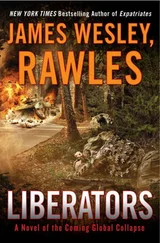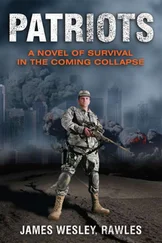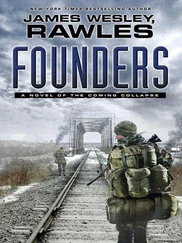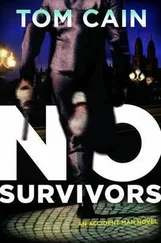Doyle came on board just a few months into the shift from pilot training to an operational wing. In the first staff weenie position of his career, Doyle was assigned as the wing maintenance officer. In recent weeks his duties necessitated spending most of his time doing paperwork at either the 56th Operations Group (OG) or the MXG hangars. It all seemed rather pointless, since all but a few members of his own wing were in Saudi. He expended many hours writing maintenance training plans and standard operating procedures (SOPs) for notional units that would be needed for a theater-wide war contingency. He realized that his unit would never get the funding for F-22 Raptors and that they were indeed doomed to eventual deactivation. His work seemed absolutely pointless.
Doyle had orders to catch up with the wing in Saudi in late November, but he dreaded doing the rotation. It would take him away from Blanca and Linda. With the current economic meltdown, he worried about their safety in his absence. Several times Ian thought out loud, “What if things get even worse?”
On one of his class breaks, Doyle used his cell phone to call one of the civilian technicians at the 56th OG headquarters who always had his finger on the pulse of the organization. The news startled Doyle. “The chief of staff of the Air Force is working up contingency plans for the emergency redeployment of almost all of the close-air-support aircraft in the Air Force inventory back to the States. Some know-nothing at the White House must have dreamed this one up! Rumor has it that our whole Wing will deploy to Hurlburt Field.”
“Florida? What for?”
“Get this: ‘riot control and looting suppression.’ They want to be able to use close-air-support planes.”
Doyle was flabbergasted. “What kinda bad weed they been smokin’ at the White House? Use C-A-S planes against rioters? The collateral damage would be hideous!”
Doyle paid little attention to what was presented in the class for the rest of the day. His mind was racing.
When he got home, he found Blanca in tears. She ran to Ian’s arms, sobbing. “Commercial flights are all still grounded. I spent the whole day on the expletivo phone and the expletivo Internet. I tried and tried to find a rental plane. I called as far away as Chandler, Laveen, Sun City. No go. Nobody, and I mean no body, is doing any more rentals. They say too many planes are getting stolen on ‘no-return’ flights. One of the managers said to me that they’re getting told, like, ‘You can keep my security deposit, but you have to send somebody to pick the plane up, in Montana.’”
“How many planes are getting stolen?”
“Before they cut off the rentals, like 80 percent. Some charter pilots were also getting hijacked, so they also stopped doing any charters, too. So then I started calling FBOs and the general aviation airports up in Michigan. It’s the same thing up there. I can’t find a charter outfit to fly her down, not for any sum of money. What are we going to do?”
Ian thought for a moment, then said, “Don’t worry. My dad has several guns. He can handle any rioters that come down their block.”
On Friday, just after Ian got home from his class, they got a call from one of his parents’ neighbors in Plymouth, Michigan. Though she lived just across the street from the house, she was calling from Iowa. Sobbing, she said to Doyle, “Your dad shot two of the gang that were trying to kick in my front door. He saved my life, Ian. I am so thankful.” There was a long pause, and then she went on, “I don’t know how to say this, Ian. After your dad started shooting, they got really mad, and they surrounded your dad’s house and used those Molotov things, and they burned it down-right down to the basement. Nobody got out of the house.” She sobbed again, and then said, “Your daughter was in there. I’m so, so sorry!”
The next few days were very difficult for the Doyles. Ian took two days of emergency leave. Though they were grieving deeply, they still had current events on their minds. Over the weekend, the television news showed more and more American cities descending into chaos.
“If man is not governed by God, he will be ruled by tyrants.”
— William Penn, founder and first governor of Pennsylvania
Radcliff, Kentucky November, the First Year
As the frequency of gunfire and police car sirens in Radcliff increased, Sheila decided that it was time to relocate. With her husband dead, there was nothing to keep them there. Consulting with her grandmother, Sheila ruled out moving back to Louisiana, which was even more chaotic than Kentucky. Sheila mentioned Bradfordsville, Kentucky, a small town that they had seen just once. It was a one-hour-and-twenty-minute drive east of Radcliff. “Do you remember it? It was way off the interstates, and there was an old store building for lease there.”
“We have enough gas to get there?” Emily asked.
“Yeah, but not enough to drive back here if it doesn’t work out.”
Emily said softly, “Then let’s pray.”
They bowed their heads and prayed for ten minutes. Then they looked up at each other and smiled.
“You feel a conviction?” Sheila asked.
“ Oui, tout a fait. Indeed I do.”
They called Tyree into the room and started packing the car immediately.
The drive to Bradfordsville was stressful. Tyree nervously held the shotgun all the way there.
They encountered two roadblocks, both manned by sheriff’s deputies. At the first, just outside Hodgenville, a brief radio call was made to check their license plate number. Sheila heard the deputy mention, “It’s just two women and a kid.” After a few anxious minutes of waiting, they were waved through.
The second roadblock was just west of Bradfordsville. This was strategically placed on a low bridge west of High View Drive, on State Highway 337. It consisted of six large trucks and truck trailers in a staggered formation, intended to slow the traffic to a slow, serpentine crawl. It was manned by a uniformed sheriff’s deputy and two private citizens who were wearing jeans and baseball caps. All three held identical rifles that Sheila didn’t recognize, but from their protruding magazines she knew that they were automatic or semiautomatic.
The deputy who approached Sheila’s car window asked suspiciously, “What is your business here?”
“I’m going to see the owner of a commercial building that I saw was up for lease.”
“Which one?”
“There wasn’t a sign. There was an old building next to it, as I recall, the Superior Food Market.”
“Well, they’re both vacant now,” the deputy grumbled.
“I intend to open a store in that smaller building, Lord willing.”
The deputy nodded and remarked, “Well, somebody oughtta get a store going again here or there’ll be folk starving.” After a beat he added, “It takes a lots of guts to open a business in times like these. You just keep yourself safe. You have any trouble, just ask for me, Deputy Dustin Hodges, okay?”
Sheila nodded and smiled.
Deputy Hodges gave a sweep of his hand and said, “God bless you, ma’am.”
As they proceeded to slowly drive through the remainder of the roadblock’s sharp S-turns, Emily quoted one of her favorite sayings, from the play A Streetcar Named Desire : “ ‘I have always depended on the kindness of strangers.’”
The old store building was on the main street running through Bradfordsville. It was sandwiched between the defunct Superior Foods and a gas station, also closed. At the gas station, a large hand-painted sign across the boarded front door proclaimed: “NO GAS.”
Читать дальше
